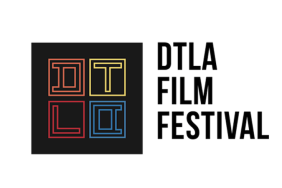
The Fifth Estate hardly leaves much room for praise outside of credit for Benedict Cumberbatch‘s performance as the narcissistic Wikileaks founder Julian Assange and a mild applause for Daniel Bruhl as his colleague Daniel Domscheit-Berg. The two give what can be interpreted as solid performances, but inside a movie where the characters have the emotional depth of nameless stooges in television commercials and each scene feels similarly empty. We’re constantly bombarded with pixelated text telling us where in the world we are now, followed by the hammering of key strokes accompanied by Carter Burwell‘s electronic score painting this as some sort of Bourne Identity-esque thriller, but it never feels any more thrilling than a mobile phone advert.
There’s no argument Julian Assange (Cumberbatch) and his website made an impact on the world over the last several years with their uncovering of illegal activities by Swiss Bank Julius Baer, the hacking of Sarah Palin’s email account, the leaking of documents from Iceland’s Kaupthing Bank and, of course, the release of a quarter of a million cables and some 77,000 documents provided the site by US Army Private Bradley Manning. Each of these plays a role in The Fifth Estate, but the film ultimately plays as some sort of highlight reel rather than an actual story as Assange flies all across the world, speaking at conventions with his head on a swivel as he rushes through airports looking about as guilty as an escaped convict in his prison orange.
Meanwhile, Daniel Domscheit-Berg (Bruhl), whose book partially served as inspiration for the film’s adaptation by first-time feature writer Josh Singer (“The West Wing”, “Fringe”), nips at his heels like a trained dog until he’s been kicked one too many times. Add to that a trio of paper thin US state department officials played by Laura Linney, Stanley Tucci and Anthony Mackie, whose names I forgot as soon as I heard them and involvement in the story seems more out of begrudging necessity rather than well thought-out reason. Everything, for that matter, in this movie seems secondary to a lot of typing, instant messaging and in-fighting.
If anything comes across it’s a focus on Assange’s delusional nature and narcissism, but that can only sustain the narrative for so long, especially since it seems to be the only thing Singer decided defined his character. Well, that and the fact he dyes his hair white and likes to use it for cheeky jokes in casual conversation.
Director Bill Condon (The Twilight Saga: Breaking Dawn – Part 1 and 2, Dreamgirls) appears to be making the film he thinks he’s supposed to make, but it would seem he was given a subpar screenplay to work from. I guess I can give Condon credit for trying to jazz up a story that’s as flat as week old soda with a techno score and flashy editing, but I can’t tell you how many times we’re reminded of the fact Wikileaks as an organization is only made up of Julian and Daniel rather than the hundreds of volunteers Assange has lied about and this is all done through a metaphorical room filled with desks and computers, all with different name plates and all with Assange sitting at each desk. Later in the film, as things begin to fall apart, we’re greeted to a bit of apocalyptic imagery as papers tumble from the scorched sky. Wow, deep.
For as much as the story should be about Assange and his co-horts as people and Wikileaks as an organization, The Fifth Estate actually seems to be reactionary and just as in the dark as the rest of the world was back in 2007 before Wikileaks began opening the door to whistle-blowers around the world. Perhaps it’s unfair to compare the film to David Fincher‘s The Social Network, but it would only be unfair because one is a towering achievement by comparison and makes the other look like a GeoCities page, still living with the same perception of the Internet we had back in the late-90s rather than the robust medium it has become where merely typing really fast on a keyboard and instant messaging isn’t as intense as this film seems to think it is.
The pounding techno score is entierly out of place, but when you’re essentially making a film made up of a series of scenes that play like commercials, generic tunes and graphics that serve as eye sores, I guess, are the apt mode of storytelling. I’m just surprised we didn’t see any women in bikinis shilling Budweiser midway through or, in this case, a commercial for the Sega Genesis, though I did notice a Commodore 64.
The Fifth Estate brings nothing new to the table as much as it scratches the surface of every headline concerning the Wikileaks organization we’ve seen over the past several years with the journalistic depth of reading a Twitter post and assuming we have the full story. In that sense I guess it may be an apt representation of our current society’s understanding of journalism, which is, for the most part, disseminated 140 characters at a time, but I don’t think that’s the point.
In the end, The Fifth Estate adds up to a film so focused on headlines, globe-trotting and keyboard mashing that it forgets to tell an actual story… you know, with characters and meaning.









